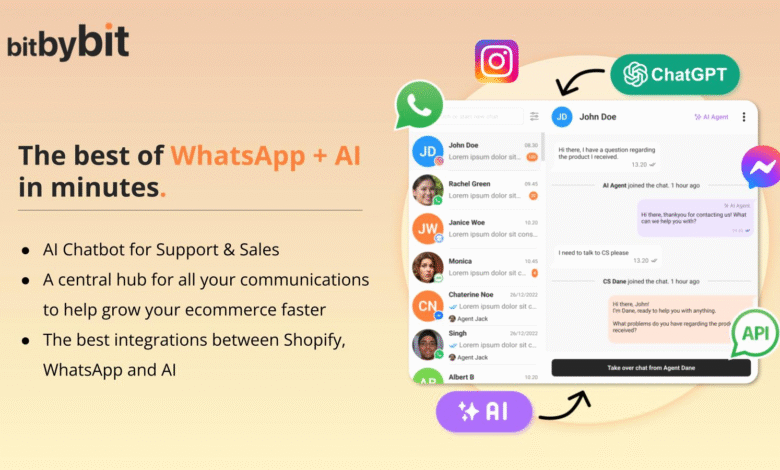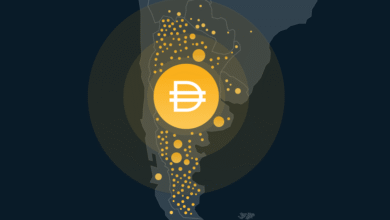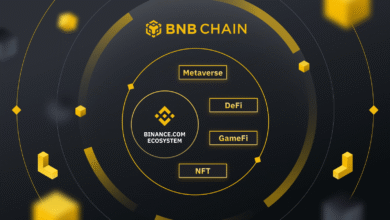Bitchat Messaging App: Jack Dorsey’s Innovative Weekend Project

Bitchat messaging app is set to revolutionize how we connect, allowing users to communicate securely and privately without the need for an internet connection. Developed over a weekend by tech innovator Jack Dorsey, Bitchat leverages Bluetooth technology to create a decentralized messaging experience. This innovative app enables peer-to-peer communication and offers end-to-end encryption, ensuring that your conversations remain private. Unlike traditional messaging platforms, Bitchat has the potential to eliminate many of the risks associated with centralized servers. As the world increasingly values secure messaging options, Bitchat is poised to become a vital player in the realm of digital communication.
The newly launched Bitchat messaging application marks a significant advancement in the landscape of mobile communication. By utilizing Bluetooth for its operations, this platform stands out as a decentralized choice for those seeking secure text and voice exchanges. Its peer-to-peer architecture allows users to connect without relying on typical internet infrastructures, making it ideal for secure messaging in various situations. Furthermore, the app’s end-to-end encryption ensures that only the intended recipients can access the messages. As technology continues to advance, tools like this can provide safer means of communication in an ever-evolving digital world.
Introduction to Bitchat Messaging App
Jack Dorsey’s latest venture, the Bitchat messaging app, is making waves in the tech community for its unique approach to communication. By leveraging Bluetooth technology, the app promises users a method of messaging that operates independently of traditional internet infrastructures. This innovative model taps into a decentralized communication paradigm, offering a glimpse of the potential future of digital interaction.
The emphasis on Bluetooth-based messaging highlights a shift towards more secure, peer-to-peer communication. Dorsey’s project aims not only to offer a messaging platform but to redefine how we engage with our peers without relying on the vulnerabilities posed by centralized networks.
Exploring Bluetooth Messaging Technology
Bluetooth messaging represents an important evolution in the way we connect with each other. Traditional messaging apps, many of which depend on internet connectivity, often face issues with privacy and security. Bitchat circumvents these problems by allowing users to communicate solely through Bluetooth, which can be more secure and immediate. This technology supports a decentralized model, providing users with a feeling of safety as their messages do not traverse the broader internet.
Moreover, the use of Bluetooth mesh networks in Bitchat opens up exciting possibilities for community-based messaging. Users can relay messages through a network of devices, creating a ripple effect that enhances connectivity in areas where internet access is limited or non-existent. This feature could be especially beneficial in emergency situations or remote areas, reinforcing the app’s value in real-world applications.
The Features of Bitchat: Security and Decentralization
Bitchat is not just another messaging app; it focuses on security and decentralization at its core. Utilizing end-to-end encryption, Dorsey’s creation seeks to ensure that users’ messages remain private and accessible only to intended recipients. This level of security aligns with the increasing demand for secure messaging solutions, especially in a climate where data breaches and privacy violations are alarmingly common.
Furthermore, the decentralized aspect of Bitchat eliminates the need for a central authority to manage conversations. This means users are empowered to communicate freely without oversight or interference. In essence, Bitchat offers a refreshing alternative to existing platforms, presenting a viable solution to the common pitfalls of centralized messaging services.
Bitchat vs. Traditional Messaging Apps
When compared to traditional messaging applications, such as WhatsApp or Signal, Bitchat stands out due to its unique reliance on Bluetooth as the primary communication medium. While popular apps typically require internet connectivity and often collect user data, Bitchat respects user privacy by avoiding these norms. This directly addresses users’ concerns regarding data handling and security, making it a appealing choice for privacy-conscious individuals.
However, it’s important to acknowledge that Bitchat is still in its early stages of development. The whitepaper indicates that there are features currently lacking in the app, and user feedback could significantly shape future iterations. For now, users drawn to secure, decentralized messaging may find Bitchat a compelling alternative to other offerings on the market.
Jack Dorsey’s Vision and Future Enhancements
Jack Dorsey’s ambition for Bitchat goes beyond a simple weekend project; he envisions creating a comprehensive platform that addresses evolving communication needs. His openness to feedback indicates a commitment to improving the app’s features, suggesting that Bitchat may soon incorporate enhancements based on user suggestions. This adaptability could be key in keeping the app relevant in a rapidly changing tech landscape.
As Bitchat develops, Dorsey’s use of social media to communicate his progress could also signify a new trend in tech projects. By engaging directly with users and addressing concerns through platforms like X, he fosters a community-based approach to app development, which might very well improve user loyalty and satisfaction in the long run.
How Bitchat Enhances Peer-to-Peer Communication
One of the standout features of Bitchat is its potential to enhance peer-to-peer communication significantly. By eliminating the need for centralized servers, the app allows users to connect directly with each other, facilitating seamless interactions without dependencies on traditional telecommunications infrastructures. This characteristic not only increases efficiency but also enhances the overall user experience by delivering messages instantly.
Bitchat’s architecture supports the idea that communication should be simple and direct, echoing a broader trend towards decentralization in technology. As more users become aware of privacy issues associated with centralized messaging platforms, Bitchat’s offering becomes increasingly attractive as a solution that empowers users and prioritizes their security.
The Role of Decentralized Messaging Apps in Today’s World
Decentralized messaging apps like Bitchat hold great promise in a world where digital privacy concerns are at the forefront. By shifting control away from central authorities, these apps ensure that personal conversations remain private, unmonitored by corporations or governments. In a time of heightened vigilance regarding data protection, Bitchat positions itself as a frontrunner in the quest for more secure communication.
Furthermore, these decentralized platforms can foster communities that thrive on collective interaction without interference. They offer users the ability to create meaningful connections based on trust and transparency—an approach increasingly sought after in a society wary of surveillance and data exploitation.
User Feedback and Improvements on Bitchat
The launch of Bitchat has stirred interest, but like any new technology, user feedback plays a critical role in its evolution. Dorsey’s acknowledgment of existing gaps in the app demonstrates his readiness to listen to the community’s needs. This willingness to adapt can be instrumental in refining Bitchat’s functionalities and enhancing user satisfaction. Positive engagement with users can harness collective insights that drive innovation.
Moreover, as feedback is integrated into future versions, Bitchat could see the introduction of features that cater to a wider array of user expectations. The app’s future developments will likely depend on how effectively it can evolve based on this interactive relationship with its users, ensuring that it remains competitive amidst the array of existing messaging solutions.
Impact of Jack Dorsey’s Innovations on Messaging Apps
Jack Dorsey’s impact on technology is profound, and the introduction of Bitchat is a testament to his visionary approach to communication. By pushing the envelope with Bluetooth technology, Dorsey is challenging norms and inviting discussions on security, decentralization, and the future of messaging. His efforts could lead software developers to reconsider the architecture of existing apps to prioritize user privacy above all.
As a prominent figure in the tech industry, Dorsey’s moves often inspire others to innovate. The launch of Bitchat may inspire a wave of new decentralized messaging solutions that prioritize security and user autonomy. Companies may begin to pivot towards similar approaches, culminating in a healthier ecosystem dominated by user-centric design.
Frequently Asked Questions
What is the Bitchat messaging app?
The Bitchat messaging app is a decentralized, peer-to-peer communication platform developed by Jack Dorsey, designed to operate solely over Bluetooth mesh networks. This enables users to send messages without an internet connection or phone number, ensuring secure messaging with end-to-end encryption.
How does Bitchat messaging app work without the internet?
Bitchat operates using Bluetooth technology, allowing users to communicate directly with one another without relying on traditional internet connections. This feature enhances its functionality as a decentralized messaging app, ideal for secure messaging in areas with limited or no internet access.
What are the security features of the Bitchat messaging app?
Bitchat includes robust security measures such as end-to-end encryption to protect user messages. As a secure messaging platform, it prioritizes user privacy and data protection, making it a competitive choice against popular apps like WhatsApp.
What makes Bitchat different from other messaging apps?
Unlike traditional messaging platforms that require internet connectivity, Bitchat uses Bluetooth for peer-to-peer communication, making it a unique decentralized messaging app. Its design focuses on privacy, allowing secure messaging without sharing phone numbers or relying on centralized servers.
Is Bitchat available for Android users?
Currently, Bitchat is available for testing on Apple’s ‘Testflight’ platform. There may be future plans to develop an Android version, but as of now, specifics about its availability for Android users have not been announced.
Can I use Bitchat to communicate internationally?
Yes, Bitchat can facilitate international communication as long as both users are within the Bluetooth range and have the app installed. It doesn’t require traditional phone services or internet connectivity, making it a useful tool for secure messaging across borders.
What improvements are planned for the Bitchat messaging app?
While Bitchat has launched its initial version, Jack Dorsey acknowledged that there are features users are looking for that are currently missing. He has expressed intentions to work on enhancing the app’s capabilities based on user feedback.
How does Bitchat compare to other secure messaging apps?
Bitchat stands out from other secure messaging apps like WhatsApp by not requiring an internet connection and offering complete peer-to-peer communication via Bluetooth. This decentralized model enhances its security and privacy features, appealing to users concerned about data protection.
| Key Points |
|---|
| Jack Dorsey develops a Bluetooth-based messaging app called Bitchat over the weekend. |
| Bitchat operates without internet or phone numbers, using Bluetooth mesh networks. |
| The app features end-to-end encryption for secure communication between peers. |
| Bitchat is positioned as a competitor to existing messaging apps like WhatsApp. |
| A whitepaper detailing Bitchat’s functionality is available on Github. |
| Jack Dorsey acknowledges user feedback and indicates future improvements are planned. |
Summary
The Bitchat messaging app, launched by Jack Dorsey, represents a significant step forward in decentralized communication. Operating solely over Bluetooth mesh networks, Bitchat does not rely on conventional internet access or phone numbers, which can enhance privacy and accessibility. With features like end-to-end encryption, it positions itself as a strong competitor to established messaging platforms such as WhatsApp. As the app continues to evolve, user feedback will play a crucial role in its development, promising an exciting future for the Bitchat messaging app.




